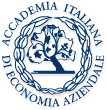Tra i soggetti più attivi nella promozione della purpose organization va segnalata la School of management del Politecnico di Milano. Due sono gli eventi organizzati recentemente...
In tema di... Marketing & Retail
The COVID-19 pandemic has shown that there is a profound need for renewal in the retail world. This transformation process had already begun some time ago, thanks to the introduction of technology in online and offline channels. The health emergency had two interesting impacts on this scenario: (i) the acceleration of some processes already in place and (ii) the awareness by companies of the growing need for digitalisation to survive in a changing scenario.
In this line, four interesting scientific contributions are offered, which have worked to show how creative solutions can bring to light interesting results under different perspectives of analysis (subscription retailing, advertising, technology adoption, creative solutions in marketing development) and how much more useful they are for both the business world and the academic one in terms of expanding existing knowledge.
(PAPER): Bray, J., Kanakaratne, M. D. S., Dragouni, M., & Douglas, J. (2021). Thinking inside the box: An empirical exploration of subscription retailing. Journal of Retailing and Consumer Services, 58, 102333.
Subscription retailing is rapidly growing. However, existing understanding of this sector is limited. Through a large-scale survey of 1356 UK consumers this paper develops a typology of subscription types and provides insight into the profile of consumers most likely to engage. The motives and barriers to subscription are assessed, providing clear guidance to retailers on the optimal positioning and marketing of their offers. This is the first empirical study in Europe, increasing the knowledge of consumers profiles, motives and barriers. Findings have clear managerial implications for subscription service providers and a robust starting point for further academic research.
(PAPER): Shankar, V., Kalyanam, K., Setia, P., Golmohammadi, A., Tirunillai, S., Douglass, T., ... & Waddoups, R. (2021). How technology is changing retail. Journal of Retailing, 97(1), 13-27.
Retailing is undergoing a remarkable transformation brought by recent advances in technology. In this paper, Authors provide a deep discussion of and look ahead on how technology is changing retail, starting with a classification of technologies that impact retailing, in particular, in the COVID-19 and beyond world. They discuss different theoretical frameworks or lenses to better understand the role of technology in retailing. They identify and elaborate on the drivers and outcomes of technology adoption by shoppers, retailers, employees, and suppliers. They speculate on future retail scenarios and outline future research avenues on technology and retailing. They close by concluding that technology is not only reshaping retailing, but also allowing retailing to pivot in the face of new and unforeseen circumstances.
(PAPER): Demsar, V., Sands, S., Rosengren, S., & Campbell, C. (2022). Ad creativity in a negative context: How a thanking message frame enhances purchase intention in times of crisis. Journal of Retailing and Consumer Services, 64, 102825.
Traditionally, advertising relies on creativity to increase its effectiveness. However, little is known about the use of creativity in negatively-valenced situations. For instance, in times of crisis such as the COVID-19 pandemic, how should retailers engage in advertising? Should they strive to deliver creative advertising, or not? Authors investigate the role of ad creativity during times of crisis, based on 43,459 consumer responses to 49 retail and service brand ads. To do so, they investigate the separate effects of the two dimensions of ad creativity: originality and appropriateness. Results indicate that creativity works differently in a crisis context, with originality and appropriateness having different effects on consumers. Further, Authors find that originality and appropriateness trigger emotions in opposite ways. However, ads that engage thanking - be it of employees, customers, or frontline emergency workers - strengthen these effects.
(BOOK): Pantano, E. (Ed.). (2021). Creativity and Marketing: The Fuel for Success. Emerald Group Publishing.
To date, marketing is about constantly innovating to deliver successful strategies and provide new customer solutions. The ability of managing new and creative approaches and appraising the relative role and value in the marketing development would secure the company’s profitability, resulting in the longevity of the company and its brands. However, it goes beyond the development and marketing of new products. Thus, also marketing discipline requires new visions, artistic talents, communications strategies, and so on. Despite much discussion about creativity and innovation, few marketers still demonstrate a remarkable ability to respond creatively and cope with the marketing uncertainties. For this reason, there is a need for a strong piece of work collecting and synthetising the actual fragmented contributions, from the creativity in strategic marketing planning and marketing mix, to the creativity in store design and consumers’ salesperson relationships, from the creativity in the brand management and communication, to the creativity of artificial intelligence in new product development.
The aim of this book is to combine these contributions in a way that is accessible for academic researchers, students who want to understand creativity as part of their expertise in marketing (including branding and communication, retailing and store design and new product development), and for practitioners who are experiencing the need of new creative approaches to the marketing strategies.
This book is designed to strengthen the overall understanding of the creative opportunities in marketing. It encourages readers to adopt future facing, creative approach to marketing management.
Thus, this book provides a strong collection of theories, empirical evidence, and case study applications synthesising the emerging research on the creativity for marketing management in an accessible way. Seeking to understand how marketers might take advantage of creativity principles, this book proposes empirical and theoretical contributions, and case studies that further offer new and provocative solutions.
a cura di Francesca Serravalle
Maggio 2022




